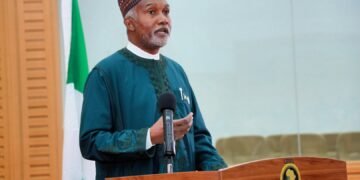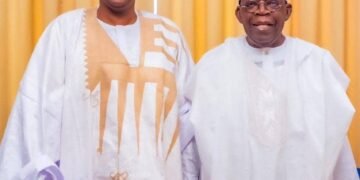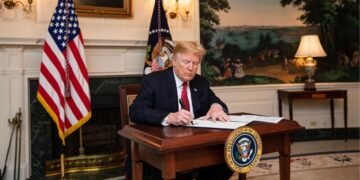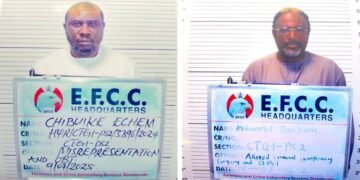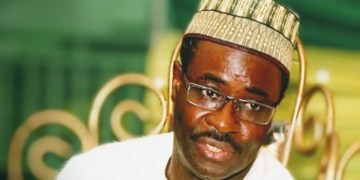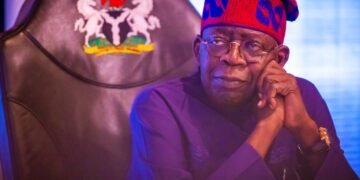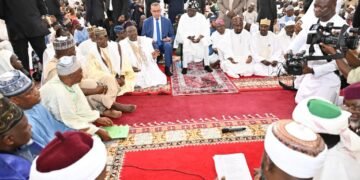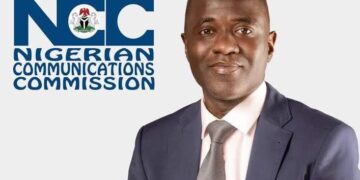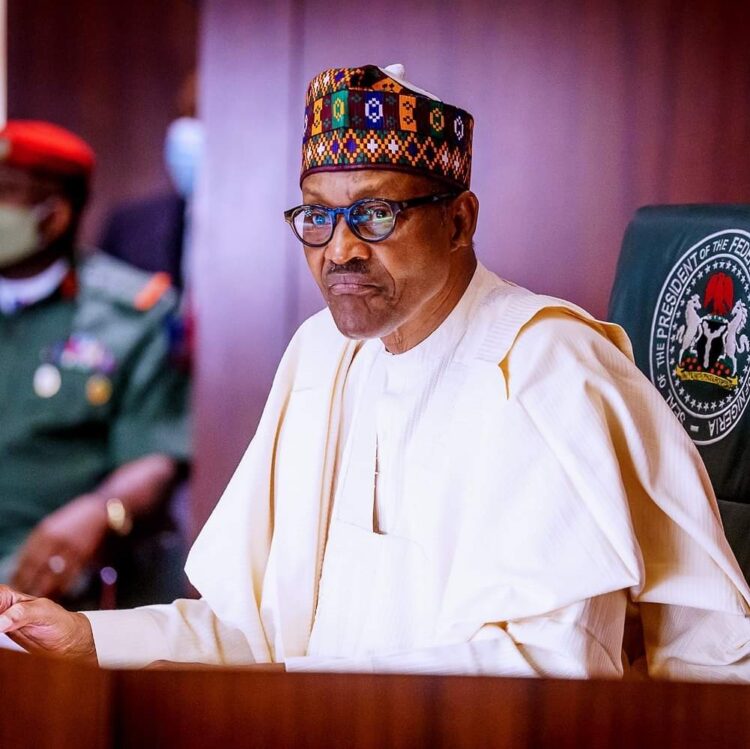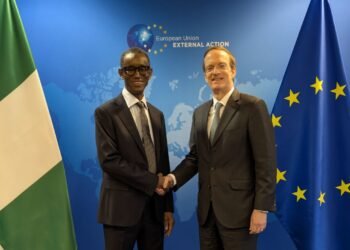By Dapo Okubanjo
He was one of only two Nigerians who had the distinction of being a military head of state and an elected President, and by the time he handed over to his successor President Bola Tinubu, only a few would disagree that he left a mark on governance in Nigeria in more ways than one.
Buhari’s stint as Nigeria’s military leader between 1983 and 1985 went by too fast for many people to see beyond his War against Indiscipline (WAI) and his tough stance against corruption which led to the detention of several members of the political class.
But it was his austere lifestyle that cemented a pride of place in the heart and mind of many especially in Northern Nigeria where a cult-like following evolved and he was known as Mai Gaskiya, the Truthful one.
This organic followership earned Buhari over 12 million votes in two election cycles so much so that a myth was built around him as the only Nigerian that goes into an election with 12 million votes in his pocket.
It was what later brought him the Presidency in 2015 as he took that acclaimed vote bank to the merger of his Congress for Progressive Change (CPC) with the Action Congress of Nigeria (ACN) and others that ended the Peoples Democratic Party’s 16 year old on power at the centre.
On assuming office, it was obvious that the Buhari administration had a big task on its hand. This was clear from the admonition of the former Central Bank Governor Professor Charles Soludo in the run up to the 2015 Presidential election.
Few weeks before the election he wrote: “The presidential election next month will be won by either Buhari or Jonathan. For either, it is likely to be a pyrrhic victory. None of them will be able to deliver on the fantastic promises being made on the economy, and if oil prices remain below $60, I see very difficult months ahead, with possible heady collisions with labour, civil society, and indeed the citizenry.”
It was indeed a time that many states were unable to pay workers’ salaries and as Soludo predicted, Nigeria soon went into a recession which although was foretold, many Nigerians still blamed it on Buhari.
It did not take long for Nigeria to exit the 2016 recession but while the Buhari administration set on with its vow to build a more resilient economy, the world was hit with a once-in-a-generation pandemic that shut down the world in 2020.
But before then, Buhari had ordered a shutdown of the country’s borders to rice imports as part of efforts to encourage local rice production. By the time COVID-19 struck, Nigeria had supplanted Egypt as Africa’s leading rice producing nation.
This was the saving grace for a rice consuming country like Nigeria as the world was literally at a standstill with zero freight movement at the time.
Legacy of Infrastructure
If there is anything that will cement Buhari’s place in history it has to be his quest for infrastructure renewal. By the time he assumed office as President, Nigeria had only one incomplete modern railway line, the 186.5-kilometre Abuja-Kaduna line. Buhari did not only complete it, he also completed the 326-kilometre Warri- Itakpe standard gauge railway that had been abandoned for nearly forty years.
It is necessary to add that it was the late President’s administration that converted the railway project to a passenger line from its original freight design and also built 12 railway stations. In addition, the 157-kilometre Lagos-Ibadan segment of the Lagos-Kano railway project began from scratch and was completed on his watch.
Also, the 284-kilometre Kano-Maradi railway project which is to cover three states,Kano, Jigawa and Katsina before terminating in Maradi Niger Republic began in the Buhari years.
Then there is the Ajaokuta-Kaduna-Kano (AKK) gas pipeline project which construction began in 2020. It is a major infrastructure to transport natural gas over the course of about 600km from Ajaokuta, in Kogi State through the Federal Capital Territory (FCT) to Kaduna and Kano. It is a major part of the Trans- Nigeria Gas pipeline project that will enhance electricity supply and support gas-powered industries.
Buhari also did not ignore road projects. The story of how he bucked the trend to ensure that the Second Niger Bridge came to reality will be told to generations to come especially in the South East region where it was used as a campaign tool in previous election cycles. There is also the Loko-Oweto bridge in the Nasarawa-Benue axis of North Central Nigeria which has now reduced travel time for commuters from the South East to Northern Nigeria.
A major characteristic of the Buhari-era projects is creativity in financing. While some of the funds came from Sukuk bonds, he also introduced road infrastructure tax credit scheme via an Executive Order which President Bola Tinubu has also keyed into.
While the Buhari infrastructural strides will go down as legacy projects, the National Social Investment Programme (NSIP) he pioneered, marked the beginning of a proper social welfare scheme in the country, empowering over 10 million Nigerians through N-Power, TraderMoni, School Feeding, and Conditional Cash Transfers. It has since been described as one of the largest social welfare schemes in Sub-Saharan Africa.
And there is also the Petroleum Industry Act (PIA) which became law in the Buhari years after it was stalled for about 20 years. Its impact is now being felt with new investment commitments in Nigeria’s oil and gas sector after years of inactivity.
Although there are people bent on denying the late President his place in the history of Nigeria’s development, but as Buhari Media Organization (BMO) noted in its tribute: “Buhari will be remembered as leading Nigeria at some of its most difficult periods but faced the challenges head-on; re-engineering the economy, bailing out state governments, paying-off decades-old pension liabilities, building critical infrastructure across the country, implementing agricultural development programmes for self sufficiency and the biggest social welfare programmes targeted at the poorest of the poor and the vulnerable.
“Buhari’s tenure saw the equipping of Nigeria’s Armed services in a manner unprecedented in history to counter security challenges.
“His imprints in Nigeria’s socio- economic development will remain indelible.”
The former President may have had his shortcomings, like all mortals, but it is an undeniable fact that he has a number of legacies that will cement his place in Nigeria’s history.
Dapo Okubanjo, a member of Buhari Media Organization (BMO) from 2018 to 2023 writes from Abuja.

